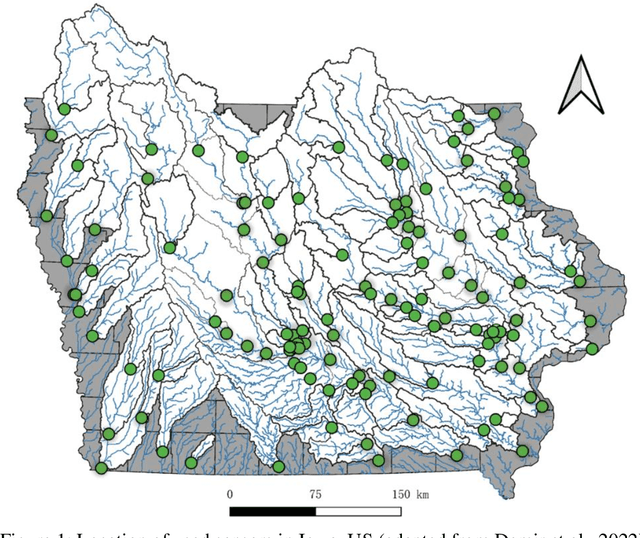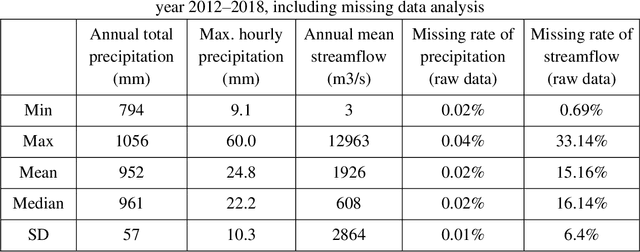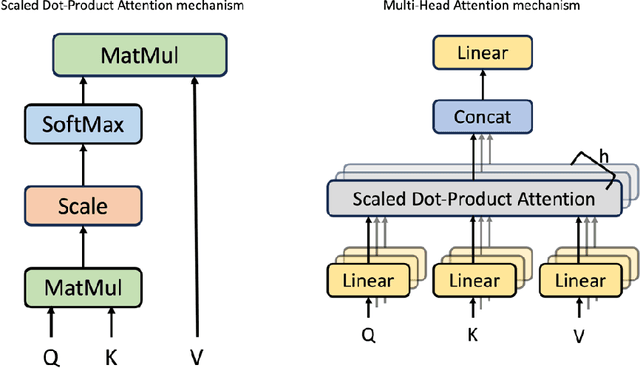Towards Generalized Hydrological Forecasting using Transformer Models for 120-Hour Streamflow Prediction
Paper and Code
Jun 11, 2024



This study explores the efficacy of a Transformer model for 120-hour streamflow prediction across 125 diverse locations in Iowa, US. Utilizing data from the preceding 72 hours, including precipitation, evapotranspiration, and discharge values, we developed a generalized model to predict future streamflow. Our approach contrasts with traditional methods that typically rely on location-specific models. We benchmarked the Transformer model's performance against three deep learning models (LSTM, GRU, and Seq2Seq) and the Persistence approach, employing Nash-Sutcliffe Efficiency (NSE), Kling-Gupta Efficiency (KGE), Pearson's r, and Normalized Root Mean Square Error (NRMSE) as metrics. The study reveals the Transformer model's superior performance, maintaining higher median NSE and KGE scores and exhibiting the lowest NRMSE values. This indicates its capability to accurately simulate and predict streamflow, adapting effectively to varying hydrological conditions and geographical variances. Our findings underscore the Transformer model's potential as an advanced tool in hydrological modeling, offering significant improvements over traditional and contemporary approaches.
 Add to Chrome
Add to Chrome Add to Firefox
Add to Firefox Add to Edge
Add to Edge